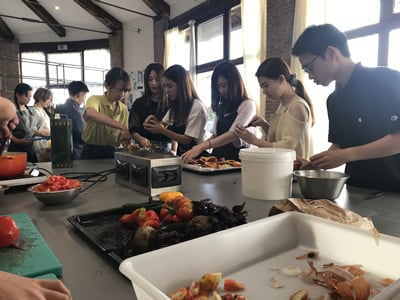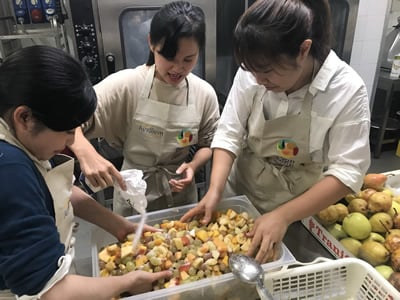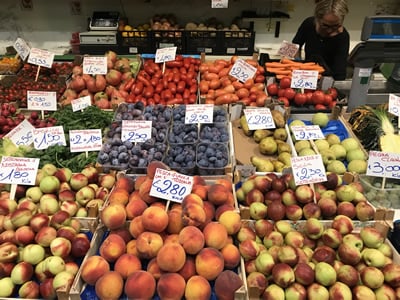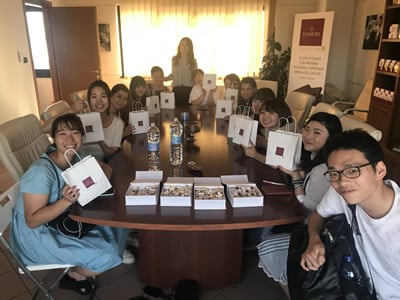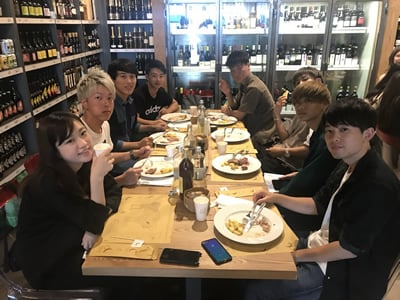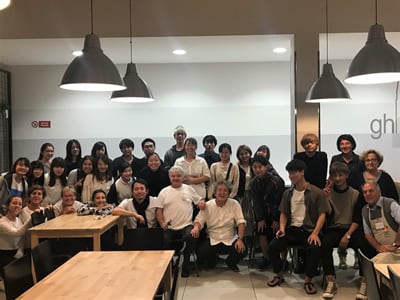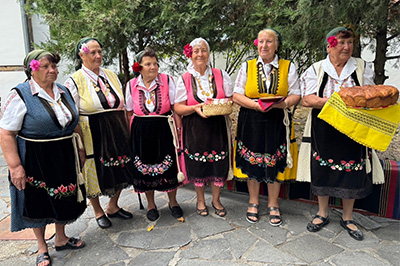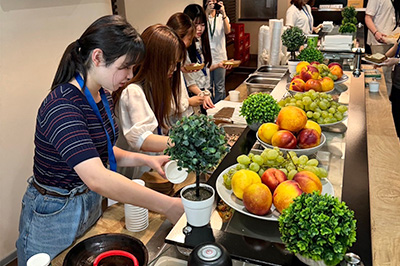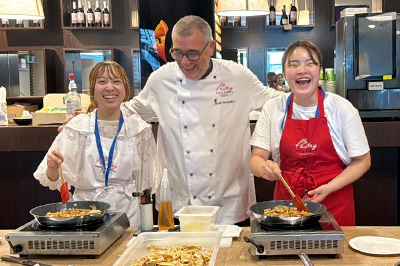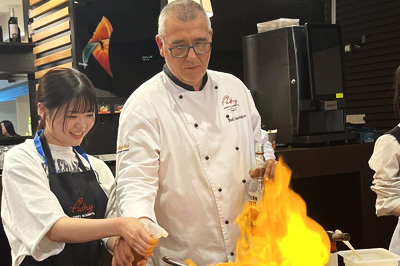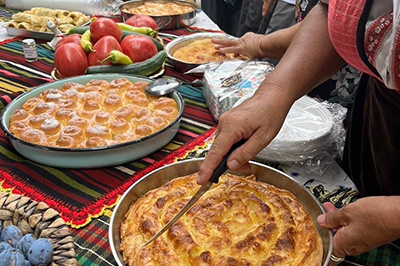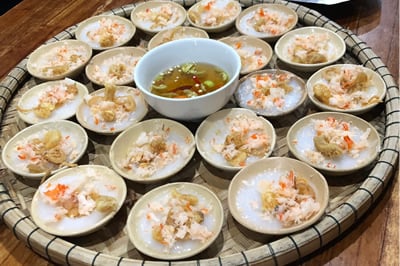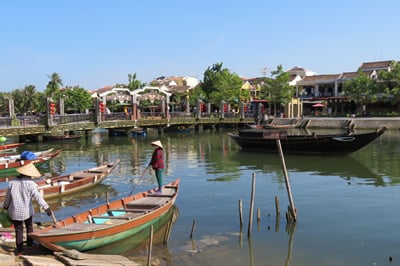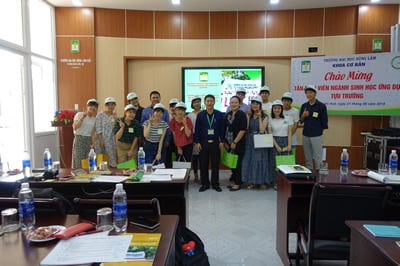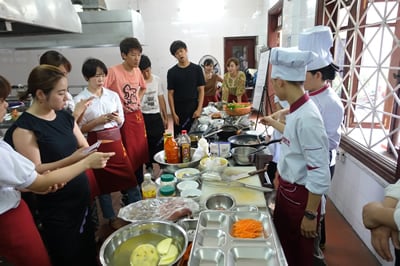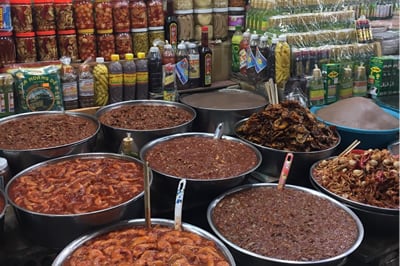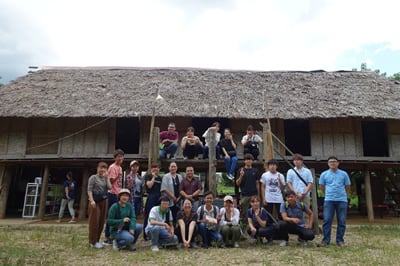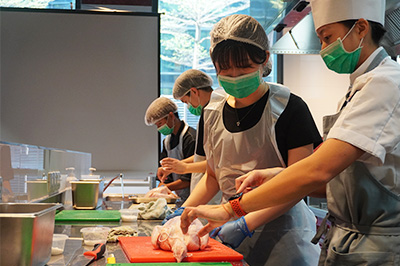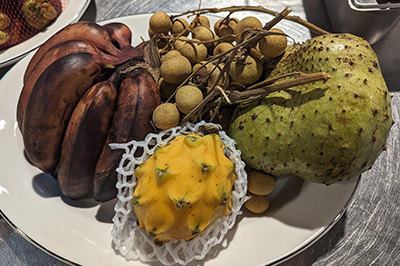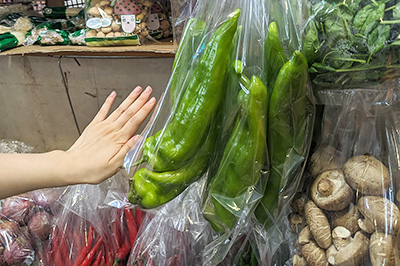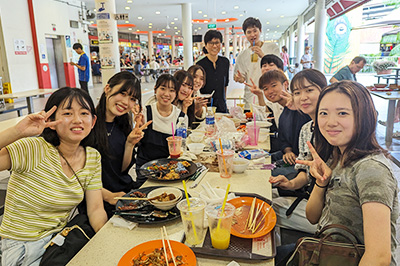STUDY ABROAD PROGRAMS
Gastronomic Study ProjectⅠ
To develop advanced management skills in food science, it is important not only to acquire knowledge but also to gain deeper understanding through the practical application of that knowledge in real-world settings.
The College of Gastronomy Management offers a regular curriculum course titled "Gastronomic Study Project I" (GSP I), which aims to deepen students’ learning through problem-based approaches and expand their perspectives through new experiences. These experiences take place in domestic and international food industry settings, serving as a bridge between classroom learning and real-world practice. The overseas program utilizes summer vacation periods and provides students with opportunities to work in international contexts, helping them develop the ability to identify and address social issues.
(Please note: The itinerary and program details may vary depending on the academic year.)
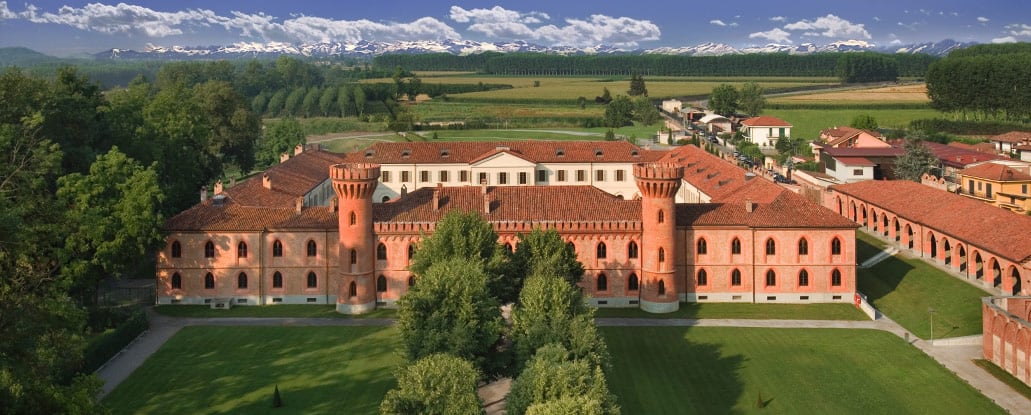
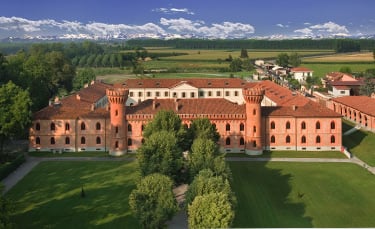
LocationItaly
The GSP Italy Program offers students the opportunity to observe and experience diverse food industry settings throughout Italy, primarily in Florence and Northern Italy, in collaboration with our partner institution, the University of Gastronomic Sciences (UNISG).
The program begins in Florence, Tuscany, where students visit olive groves in the surrounding countryside to learn about Italian vegetable harvesting and traditional Tuscan cuisine.
The next stage takes students to the Emilia-Romagna region. In Modena, they observe vocational training programs for immigrants, visit "Refettorio" (a community kitchen that promotes social inclusion of the underprivileged) and explore the area's historic markets. In Bologna, students study the art of gelato-making at the "Gelato University," supported by Carpigiani.
The program then moves to the Piedmont region. In Turin, students participate in a chocolate workshop hosted by DOMORI and attend tastings and lectures on coffee culture at LAVAZZA, guided by museum staff.
The final destination is the University of Gastronomic Sciences (UNISG), where students learn about the Slow Food philosophy, food biodiversity, and traditional Italian cuisine. They share lunch with international students at the university cafeteria, and the program concludes with a tasting experience guided by specialized instructors at the "Wine Bank" located in the university's basement.
(Please note: The itinerary and program details may vary depending on the academic year.)
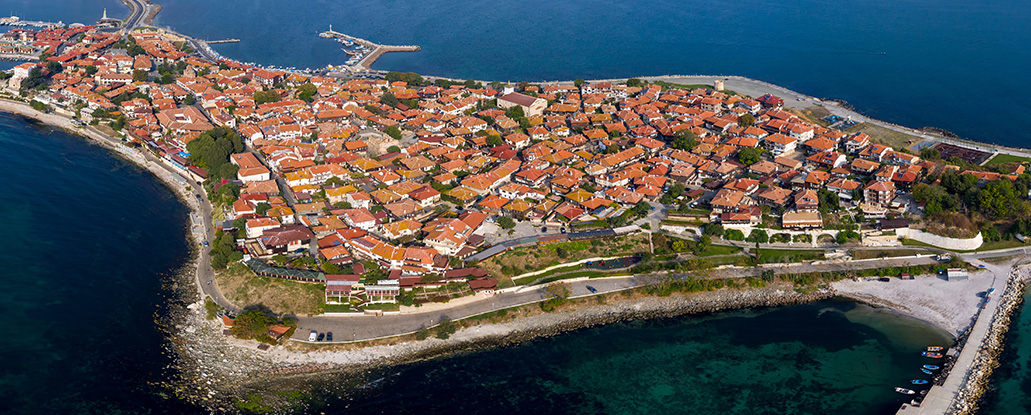
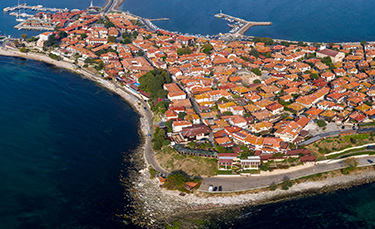
LocationBulgaria
GSP Bulgaria explores the culinary culture of Bulgaria and invites students to consider the future of gastronomy through firsthand experiences. In the first half of the program, students train at the Bulgaria Pastry Academy, the country’s first professional school for patisserie, where they learn directly from top chefs. In addition to practicing traditional Bulgarian dishes and creative sweets such as “chocolate sushi” and “crepe tagliatelle,” they attend lectures on topics such as gastronomic diplomacy, chocolate branding, and culinary innovation. Students also have the unique opportunity to appear on a popular Bulgarian cooking show, where they introduce Japanese home cooking, signature dishes, and wagashi (traditional sweets), fostering meaningful cross-cultural exchange.
The second half of the program, in collaboration with the Bulgarian Slow Food Association, focuses on food as a vehicle for regional revitalization. Through fieldwork in villages that preserve heirloom vegetables, participation in a local food festival, and hands-on cooking sessions in traditional dishes such as yogurt soup, banitsa, and herbal salt, students engage with local foodways. Exchanges with local producers and university students further provide deeper insights into the relationship between food heritage, cultural identity, and sustainable tourism.
By experiencing food culture rooted in Bulgaria’s natural environment and everyday life, students gain valuable perspectives on the evolving role of gastronomy in contemporary society.
(Please note: The itinerary and program details may vary depending on the academic year.)
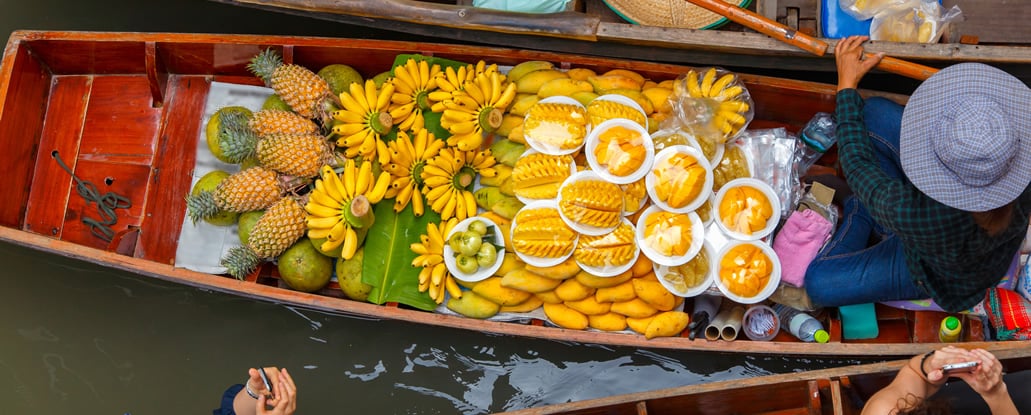

LocationVietnam
This program takes place primarily in Da Nang and Hue in central Vietnam and is conducted in collaboration with local universities. It offers specialized lectures and food-related seminars, fieldwork, and cross-cultural exchange, all delivered in English. In the first half of the program, students explore the restaurant and hotel industries in Da Nang, a city experiencing rapid urbanization and tourism development. They also examine community development initiatives in Hoi An.
In the latter half, students deepen their understanding of agriculture, fisheries, and the food culture of ethnic minorities through imperial cuisine workshops in the ancient capital of Hue, along with field research in nearby agricultural and fishing villages.
The program aims to cultivate a global perspective on food and society by combining English communication with hands-on learning in a multicultural environment.
(Please note: The itinerary and program details may vary depending on the academic year.)


LocationSingapore
Singapore, one of Southeast Asia's most advanced nations, is a trendsetting hub and one of the safest countries in the world. Renowned as a gourmet destination, it attracts tourists from around the world, from three-star restaurants to affordable street food stalls. Singapore’s hawker culture, designated as a UNESCO Intangible Cultural Heritage, is emblematic of the country’s multiethnic identity. It offers a space where people can casually enjoy a wide variety of street food, prepared in clean, modern environments, crossing ethnic boundaries from early morning until late at night.
The GSP Singapore Program consists of three main activities:
1: In collaboration with the Asian Culinary Institute (ACI) of Nanyang Polytechnic, our partner institution, students learn about heritage foods that represent Singapore’s multiethnic culinary scene, including Chinese, Malay, Peranakan, and Indian dishes. They also participate in hands-on cooking workshops, using spices and ingredients that are rarely found in Japan.
2: To observe how food business operates, students visit markets and hawker centers, and tour Japanese food businesses that have expanded in Singapore. They can also hear directly from Japanese professionals working in the local food business scene.
3: As part of student-led activities, students explore Singapore's unique food businesses such as hawker centers and local cafés. They also participate in exchanges and home visits with Singaporean students, and conduct fieldwork based on individually chosen themes and interests.
(Please note: The itinerary and program details may vary depending on the academic year.)

